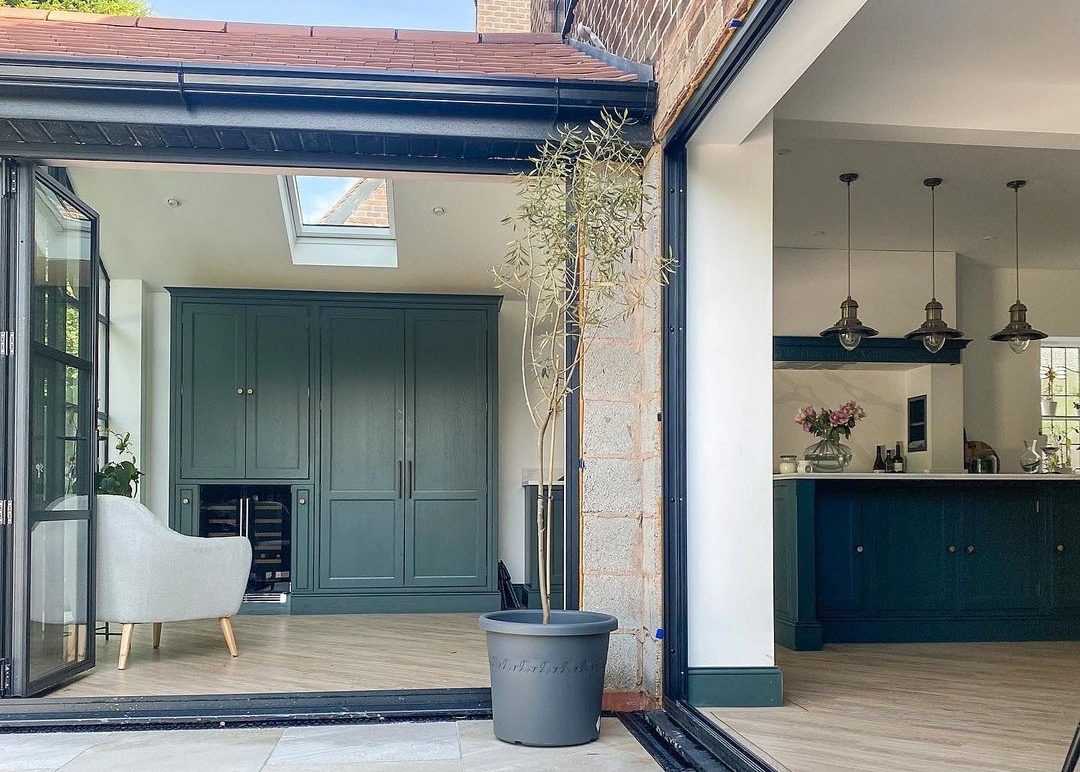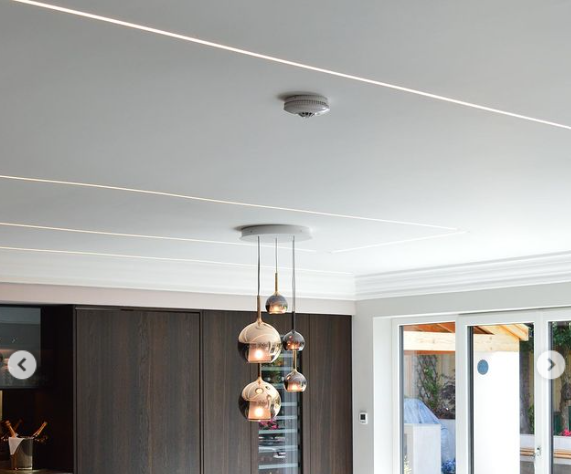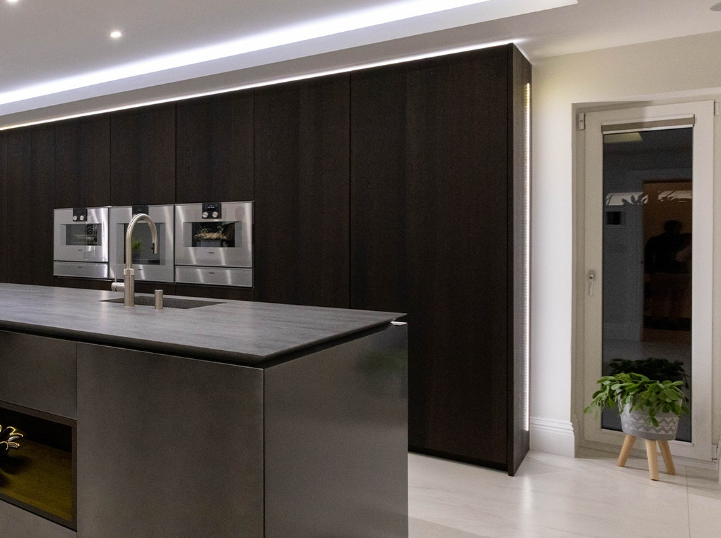During a kitchen renovation or remodel, you have what feels like thousands of different factors to consider. One of which is the lighting, and whilst this may not be at the top of your priority list, we believe it should be.
Lighting, both natural and artificial, is one of the most essential elements of kitchen design as it can completely transform a space. In addition, it can provide atmospheric details, act as décor, and improve functionality, so it’s crucial that you get it right. We have put together this helpful guide to offer assistance when choosing your kitchen lighting. Whatever your kitchen’s aesthetic or functions, there is a perfect lighting choice for you and your space.
Making the Most of Your Natural Light
In a kitchen, the more natural lighting, the better. So if you’re remodelling the structure of your kitchen, perhaps with an extension, we would strongly recommend considering adding more windows. In particular, a skylight, as they let in an abundance of natural light and look rather impressive in any space they’re installed into.
Natural light is fantastic for improving mood, so you certainly won’t regret the addition of these extra windows. In addition, as well as the flood of sunlight you’ll get in your kitchen, you’ll also have new pockets of views into your garden or wherever your kitchen leads to.
Additionally, decent ventilation is vital in a kitchen, so by installing new windows, you can improve air circulation and ensure the air is fresh, preventing the room from becoming stuffy while cooking.

Clever Colour Schemes
Did you know your chosen colour scheme also impacts the lighting in your kitchen? This is why it’s important to plan out your palette and which areas will be which colour before you put paintbrush to wall.
Brightening Colours
You can’t go wrong with white, but there’s a chance that your room could feel washed out if you overdo it. White large format floor tiles are a great choice as they help reflect the light and make the room feel spacious and bright. Pair these with coloured ceramic kitchen wall tiles to add depth to your space and give the room a pop of colour.
Don’t Shy Away From Dark Tones
At first, you may try to avoid dark and moody shades as it is a presumption that these can make a space feel small and claustrophobic. This isn’t the case at all, but if you’re not convinced, feel free to try out some tile samples. Put these up in your kitchen and have a look at how they reflect or absorb the light at different times of the day before settling on your favourite shade.
Types of Artificial Kitchen Lighting
Late-night baking, hosting your friends after dark, and creeping downstairs for a midnight snack. All scenarios will require different types of artificial lighting, making it just as important a design element as natural light. There are three main types of artificial kitchen lighting, each as essential as the next and having a combination of all three is the best way to ensure your space is well lit and looks fantastic.

Atmospheric
Atmospheric lighting sets the room’s tone and can help create mood in your space. Depending on how you wish your kitchen to look and feel, you can use various types of atmospheric lighting to set the scene so you can use your room in different ways. For example, under-cabinet lighting is a staple in many of the fixtures in our catalogue of luxury kitchen brands; whilst it isn’t needed to use the space, it looks incredible and promotes your kitchen from plain to luxurious.
Functional
Functional lighting plays a crucial role in your kitchen design, and goes far beyond bulbs in your ceiling – think spotlights, main light fittings, or task lights. This lighting will help you use your room efficiently when the sun goes down. Its primary purpose is to illuminate the area you need, and whilst it can be plain, there’s nothing wrong with going all out on your functional lighting to make it look impressive too.
Decorative
Decorative lighting’s only true purpose is to make a statement and look beautiful. So whilst atmospheric and functional lighting can also look incredible, to really get that luxury feel in your kitchen, having lights for the sole purpose of décor is absolutely essential. In other rooms of the home, lamps would be where you could bring in your decorative lighting, but this isn’t necessarily practical for a kitchen as you need your worktop space for other, more functional purposes. So instead, bring in decorative elements through cabinet lighting and cleverly placed LED strips.

Choosing Lighting Based on Your Kitchen’s Aesthetic
Understandably, this is a lot to think about, and you may now be wondering where to start choosing the most suitable lighting for your kitchen. One of the best ways to select kitchen lighting is to match it with the room’s aesthetic. This will help you narrow down your choices as you will only look at fittings that tie in with the space and look in place.
For example, if you have a particularly grand kitchen decorated with Versace tiles, it may be best to choose traditional style lighting, as a modern LED strip may contradict the classic splendour that Versace projects.
In contrast, if your kitchen oozes modernity, sleek and contemporary lighting such as spotlights will work best in your space, as opposed to a classic chandelier.
Choosing Lighting Based on Functionality
Another way to simplify choosing your kitchen lighting is by basing your decisions on functionality. If you have a bustling kitchen, perhaps you have a large family, or you enjoy hosting friends regularly, thinking about the lighting this way is best.
Our Valcucine kitchens are a fantastic example of this; they use innovative lighting in their designs to improve user experience and allow you to make the most out of your kitchen. For instance, their backlit cabinets look stunning and provide ergonomic lighting that can be dimmed and brightened depending on the time of day to perfectly illuminate your space for its usage.






























Leave a comment
This site is protected by hCaptcha and the hCaptcha Privacy Policy and Terms of Service apply.